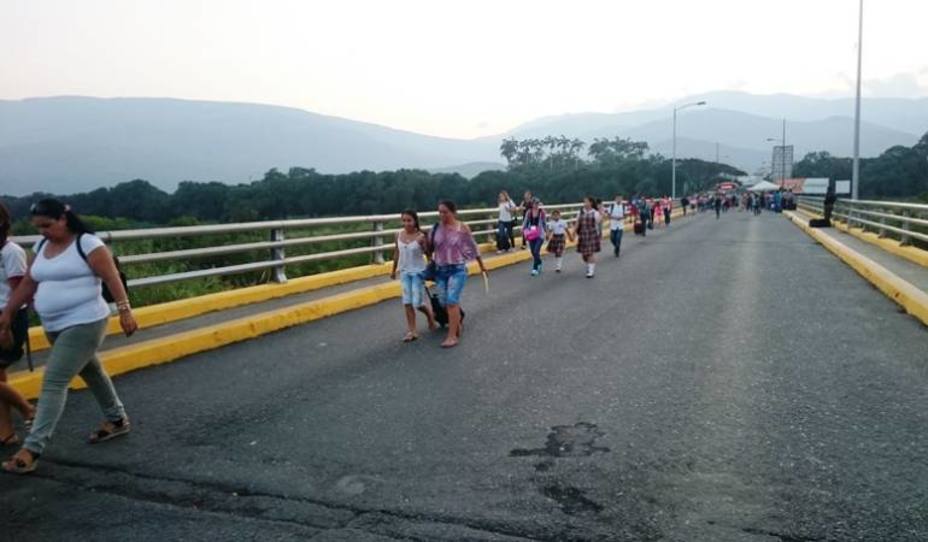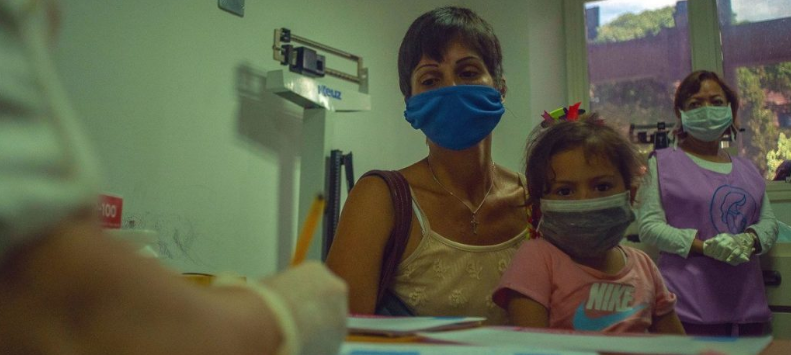Venezuela has the ninth-largest reserve of freshwater in the world, only behind Brazil, Russia, Canada, China, Indonesia, the United States, Bangladesh, and India. Nearly a thousand rivers flow through 353,841 sq mi of national territory and sizable underground reserves account for an estimated 93 million cubic meters of water fit for use each year.
Despite this, most Venezuelans are thirsty. Water does not reach their homes and its quality is more than questionable.
Having sufficient and clean water is a human right. This means that we should have a continuous supply for personal and domestic use that allows the guarantee of other rights such as health and food. The World Health Organization (WHO) has indicated that about 50 liters of water per person per day is needed to guarantee the satisfaction of the most basic needs, and thus keep public health risks low.
For the United Nations, the right to water and sanitation are not divorced from other human rights. The guarantee of the right to water and the efficient management of water resources by governments have a fundamental impact on the realization of the rights to life, health, food, adequate housing, a healthy environment, and the right to work, among others.
Low water availability and poor governance of water resources accentuate inequalities and have a significant impact on the most vulnerable population. In Venezuela, the urban and rural population is seriously affected by constant interruptions in the provision of drinking water by the State and, although the interruptions affect all socioeconomic strata, the impact of the lack of water is more pronounced among the poorest people, who lack the means to access private water supply services, install alternatives for water collection at home, and resort to sanitation mechanisms for the scarce amount of water they receive.
According to the United Nations World Water Development Report 2019, carried out by UNESCO and other organizations, Venezuela ranked fourth among the nations of Latin America and the Caribbean, as suffering the greatest inequality in access to water between the richest and poorest sectors of the population. In the context of the Complex Humanitarian Emergency and the exponential growth of poverty, this gap constitutes an obstacle to the lives of millions.

Venezuela has benefited in recent years from a high and stable income from oil revenues. This did not translate into social investment and infrastructure for development; on the contrary, the absence of planning and the enormous network of corruption that grew in the shadow of the Chávez and Maduro governments caused these resources to be squandered. Today, Venezuela is one of the countries that invests the least in infrastructure for water sanitation, under 50% of the resources needed to meet national goals, according to UNESCO.

In 2018, during an interview with Provea, engineer José Norberto Bausson detailed that between 1950 and 1998, Venezuela managed to build a network of 100 reservoirs that supplied continuous water to about 87% of the population, and that the projection by mid-2000 was to build 7 more reservoirs, which would allow the continuous and universal supply of drinking water with high standards.
But lack of maintenance and corruption ruined the achievements. To date, the figures have been reversed and more than 80% of the Venezuelan population suffers from constant interruptions in drinking water supply, ranging from 48 hours a week, to outages of more than a month. The quality of the service has also fallen to sordid levels, with hundreds of users denouncing the stench and odd color of the water they receive at home.
According to the WHO, the infant mortality rate from diarrhea in Venezuela is six times higher than 15 years ago. According to researchers from the Central University of Venezuela, nearly one million residents in the city of Caracas are exposed to contaminated supplies.
“Most of the state-run water treatment plants in Venezuela are sending ‘raw’ water without purification because the Maduro administration does not have the gas, chlorine, and aluminum sulfate necessary to purify and clean the liquid,” said María Eugenia Gil, director of Aguaclara Foundation, in a recent interview with Provea.
In the opinion of Gil, the quality of the water is also affected by the great pollution of the national reservoirs: “The water comes from a reservoir like Pao Cachinche (Carabobo-Cojedes) that supplies Hidorcentro’s network. This reservoir is contaminated with domestic and industrial wastewater that goes directly into it. Wastewater is recycled and redistributed, affecting pipes, tanks, and the entire distribution network, ”she says.
In 2019, the Venezuelan Observatory of Public Services (OVSP) conducted several perception surveys on the situation of public services. According to data released by the organization, formal access to potable water service through pipelines was 91.8%, the highest being San Cristóbal (97.1%) and Caracas (95.6%). Regarding its quality, the city of Punto Fijo reported the highest negative rating (93.9%), while San Cristóbal had the lowest (23.3%). However, only 16.7% of the 6,193 people surveyed said they have a continuous supply of water in their homes; 40% reported having service one to four times a week and 93.7% of citizens affirmed to store water at home.
In December 2019 the OVSP released a second survey which found that in ten of the country’s main cities, 93.8% of households stored drinking water, and 38.6% of them indicated to keep at least a 5 days reserve given the deficiencies in the provision of the service.
Coping with COVID-19… without running water
“Since handwashing with soap and clean water is vital in the fight against COVID-19, governments around the world must provide continuous access to sufficient water to populations living under the most vulnerable conditions.” The warning, issued in March 2020 by a group of independent United Nations experts – including the Special Rapporteur on the human rights to safe drinking water and sanitation – was a call to world governments to guarantee the supply of drinking water to mitigate the impact of COVID-19.
But in Venezuela, the government acts in the opposite direction. Since the declaration of national quarantine on March 16, deficiencies in the provision of water service to homes have worsened. In Caracas, a failure in the pumping station that supplies water to the capital has caused the interruption throughout the city. The outages have lasted for almost three weeks and the water supply is limited to almost 48 hours per week. In higher areas, where most of the city’s poor neighborhoods are located, the situation is aggravated due to deficiencies in pumping, associated with the deterioration of the equipment and electrical failures.
For people living outside Caracas, this is nothing new. Like the electricity crisis and fuel shortages, the lack of water has hit hard outside the capital city. At the beginning of May, residents of Las Acacias neighborhood, in Cabudare, Lara, told journalists from El Pitazo that they had spent 834 days without receiving water through pipes. In the Tuy river valley, south Miranda, residents of Charallave and Cúa told the same news site that they spend days without any service. In Pie de Sabana, Trujillo, a protest against the interruption of the water service for more than twenty days was repressed by agents of the Special Actions Forces of the Bolivarian National Police (FAES).
“The global fight against the pandemic has little chance of success if personal hygiene, the main measure to prevent contagion, is not within the reach of the 2.2 billion people who do not have access to drinking water,” UN experts warn, and the WHO’s recommendations to curb the contagion curve through adequate personal hygiene, look like a dream in today’s Venezuela. Lack of water is incompatible with human dignity. If the human right to water allows the realization of other rights in normal contexts, having continuous, sufficient and quality water supply during the Coronavirus pandemic translates into greater guarantees to the right to life, health, and personal integrity.
For the United Nations group of experts, people in poverty are more likely to become infected with COVID-19 due to interruptions in drinking water services, and therefore they would be subjected to more severe conditions of isolation, diminishing their ability to find food and resources to support their families.
Poverty does not only respond to the absence of economic means to satisfy needs, it also implies a situation in which large sectors of the society are subjected to severe obstacles to access basic services and a consequent denial of their civil rights. The collapse of public services in the country has created the conditions for an exponential increase in exclusion, which in times of COVID-19 increases the risks for close to 90% of Venezuelans living under the poverty line.




